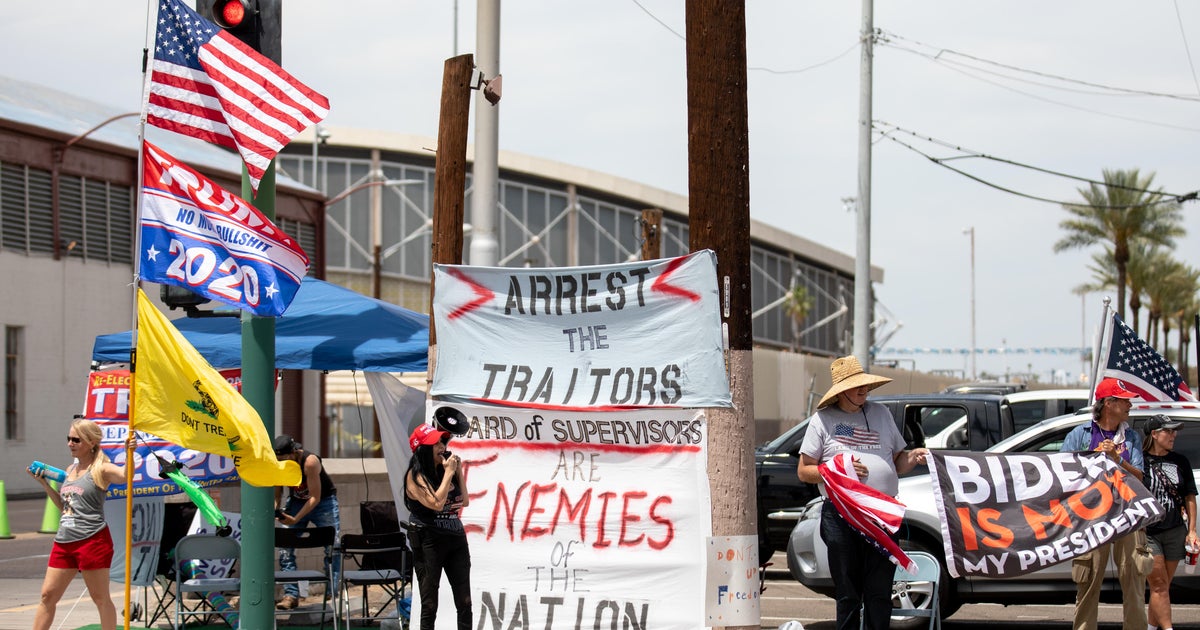Georgia NAACP and voting rights groups challenge sweeping Georgia voting law
Washington — The Georgia NAACP and voting rights organizations on Monday filed a lawsuit to block a sweeping new law in Georgia that imposes new restrictions on voting, the latest in a slew of legal battles expected to take aim at the measure.
The suit was filed in the federal district court in Atlanta just days after Georgia Governor Brian Kemp, a Republican, signed the GOP-backed measure into law. The law is the first to usher in new changes to voting procedures following the 2020 presidential election, which former President Donald Trump claimed without evidence was rigged against him and rife with widespread voter fraud.
"The thinly-veiled attempt to roll back the progress we have made to empower Georgians — to use their voices in the democratic process — creates an arbitrary law that does not improve voter confidence, secure election integrity nor increase access to the ballot box," the Reverend James Woodall, state president of Georgia NAACP, said in a statement.
The coalition of groups challenging the law argue it is the "culmination of a concerted effort to suppress the participation of Black voters and other voters of color" by the Republican-led legislature after demographic changes in Georgia led to statewide Democratic wins, most recently in the state's presidential race and two Senate races, which flipped the balance of power in the upper chamber.
"Unable to stem the tide of these demographic changes or change the voting patterns of voters of color, these officials have resorted to attempting to suppress the vote of Black voters and other voters of color in order to maintain the tenuous hold that the Republican Party has in Georgia," the suit alleges. "In other words, these officials are using racial discrimination as a means of achieving a partisan end."
These effort, the groups argue, violate the Constitution and Section 2 of the Voting Rights Act, which prohibits voting rules that discriminate on the basis of race, color or membership in a language minority group.
Georgia's elections law requires providing a driver's license or state ID number or photocopy of an ID to vote absentee by mail and limits the time people have to request an absentee ballot. It also restricts the locations of ballot drop boxes and when they can be accessed, and expands early voting on weekends. The new law also bans people from delivering food or drinks to people within 150 feet of a polling site, but allows for self-service water. The measure makes changes to the State Election Board, which the NAACP argues effectively grants the board the power to take over county election boards.
While Republicans argue the voting overhaul will restore confidence in the integrity of Georgia's elections, Democrats say it restricts voting access and disproportionately harms Black and Latino voters. On Thursday, President Biden called the election bills spearheaded by Republicans in Georgia and other states in the wake of the November election "un-American" and "sick." More than 250 bills that would restrict voting access have been introduced in 43 states, according to the Brennan Center for Justice.
Mr. Biden has urged Congress to pass legislation that would effectively counter the state-level efforts from Republicans to change voting rules and said the Justice Department is "taking a look" at the Georgia law.
The NAACP lawsuit marks the second legal challenge to Georgia's elections law. On Thursday, a coalition of voting and civil rights groups sued Secretary of State Brad Raffensperger and the State Election Board in the Northern District of Georgia. The suit argues the law was "clearly intended to and will have the effect of making it harder for lawful Georgia voters to participate in the state's elections" and will "impose these unjustifiable burdens disproportionately on the state's minority, young, poor and disabled citizens."
Following the general election, Mr. Trump and some Georgia Republicans claimed there was mass voter fraud in the state's election after Mr. Biden became the first Democrat to win Georgia since 1992. Two recounts affirmed Mr. Biden's win and a signature audit found no widespread fraud.
Still, Kemp said Thursday after signing the bill into law that "significant reforms to our state elections were needed" following the November election. The law takes another step towards ensuring Georgia's elections "are secure, accessible and fair," he said.
Raffensperger has defended Georgia's elections system over the claims of voter fraud mounted by Mr. Trump and rebuffed pressure from the former president to overturn the results of the presidential election. In a statement Friday, Raffensperger, too, defended Georgia's new law and shot back at critics who say the changes amount to voter suppression.
"The cries of 'voter suppression' from those on the left ring as hollow as the continuously debunked claims of 'mass voter fraud' in Georgia's 2020 election," he said. "We don't have systemic voter suppression, and we don't have mass voter fraud. What we have is systemic lies for political gain that have led to a loss of public confidence in our elections."



